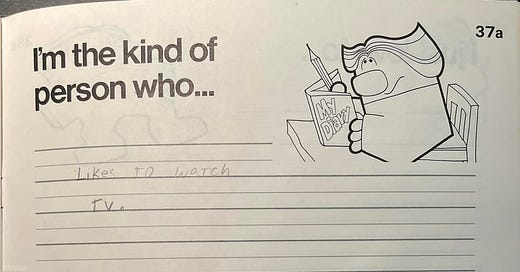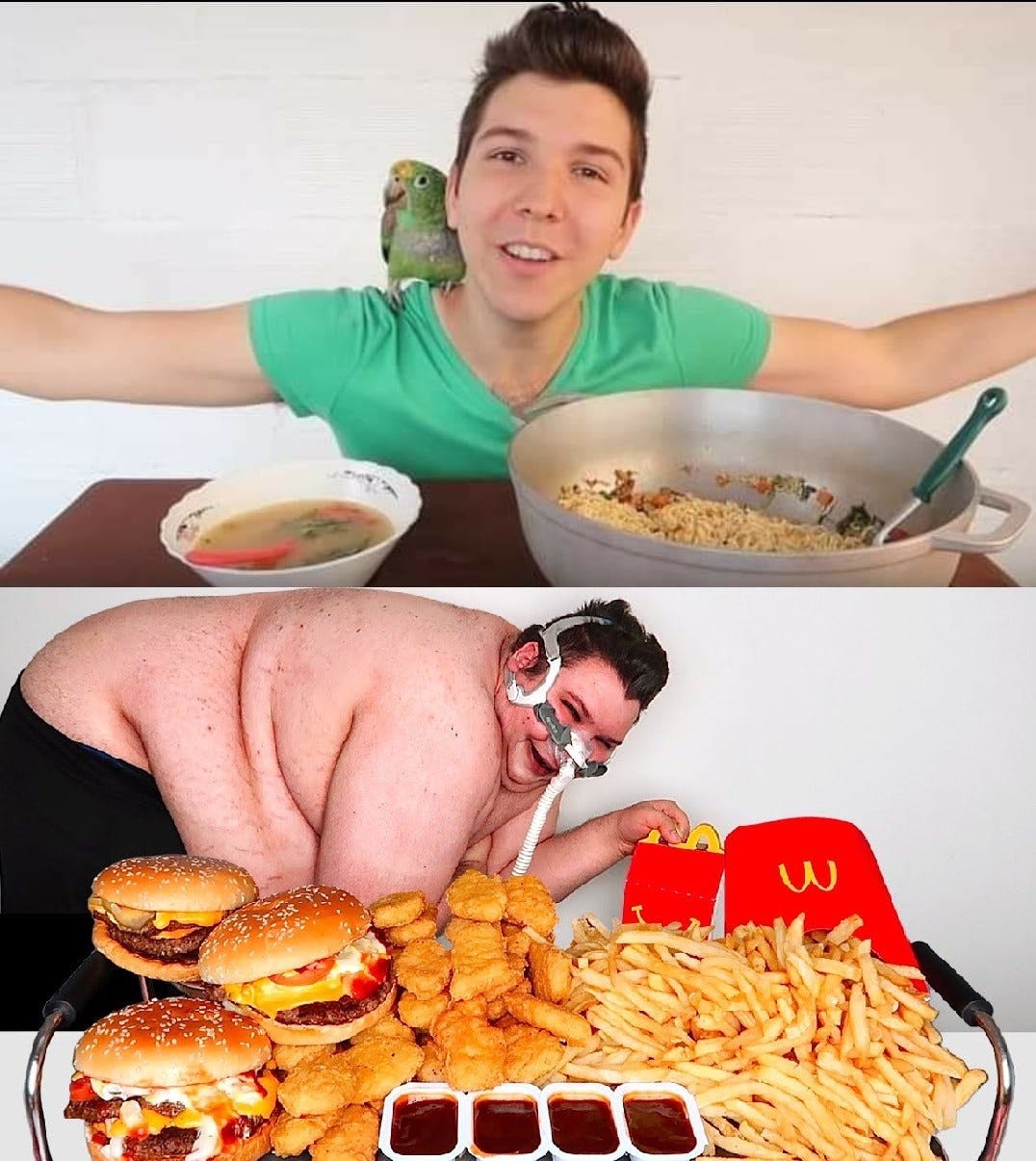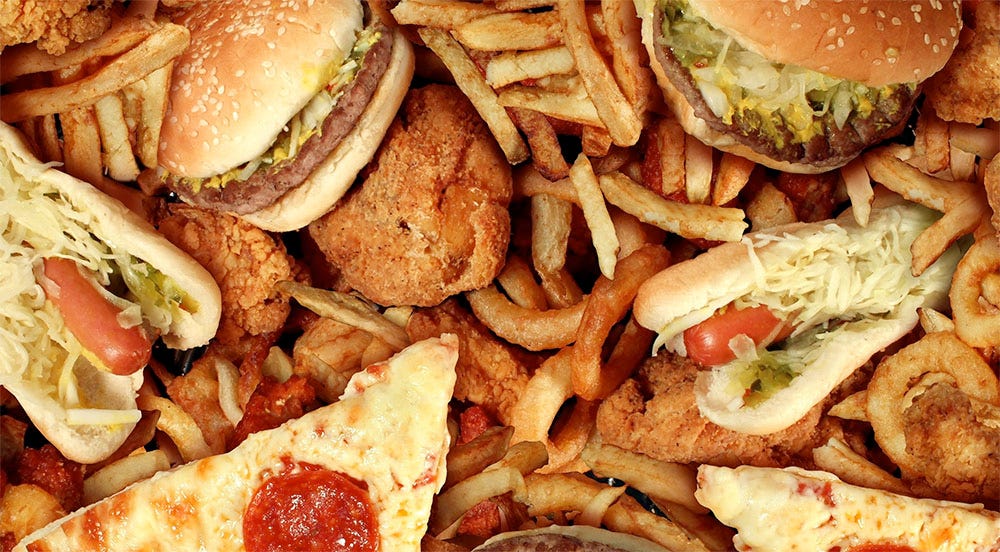A story...
July 2020
After several months of lockdown and only seeing the odd person, we were invited to lunch - outside!- with someone Brian had been working with before Covid. It was the first proper socialising we'd done in months. We arrived and were introducing ourselves when this guy's friend arrived - he'd been invited to lunch, too. He came up to me and my son, and introduced himself. He stuck his hand out, my son reached out and shook it, then looked at his hand in horror. This was the first person he'd touched in months. 'Do you want some disinfectant?' I asked as I got it out of my bag. The guy just laughed and laughed. Pre-Covid if someone shook his hand, many would have declared that they would never wash their hand again and now here's my son treating a handshake like it's poison. The guy was Bono.
Another story...
Several years ago, Brian and I went for dinner with a few people - some we knew, some we didn't. As Brian spoke to a friend and others we'd only just met, I spent the whole time talking to one of the people we knew - Hugh Grant. OK. Yea. I spent the whole time flirting with him. Come on, so would you…
About an hour into dinner, my phone rang. It was my older son - he was babysitting my younger son. Ugh. What's happened? I answered the phone at the table.
Son: 'Hey. Can I have that lasagna that's in the fridge?'
Me: 'Yep.'
Son: 'Thanks. What are you doing?'
Me: 'We're having dinner. I'm here with Hugh Grant.' I looked at Hugh.
Son: 'Who's that?'
Me: 'He's an actor. (To Hugh) He doesn't know who you are.'
Son: 'What's he been in?'
Me: '...errr...Have you seen Love Actually?'
Son: 'No.'
Me: 'Four Weddings and a Funeral?'
Son: 'No.'
Me: (to Hugh) 'He's not seen them.'
Hugh: 'Notting Hill?'
Me: 'Notting Hill?'
Son: 'Nope.'
Me (to Hugh): 'Nope. What might he have seen?'
Hugh: '(thinking)...Bridget Jones...?'
Me: (to Hugh) 'Haha! No, he won't have seen that.'
Son: 'What?'
Me: 'Bridget Jones...?'
Son: 'No.'
Hugh: '... He won't have seen About A Boy... '
Me: 'No...'
Hugh: '...not Sense and... no... Oh! Oh! I know! I KNOW!!!! I WAS THE PIRATE CAPTAIN IN PIRATES IN AN ADVENTURE WITH SCIENTISTS!!'
Me: 'YES! (To my son) He was the voice of the Pirate Captain in Pirate In An Adventure With Scientists!!'
Son: 'Oh. Yea. Ok... So I can have the lasagna?'
Me: 'Yea. Have the lasagna.'
Fame is a really funny thing.
I started working in tv in 1992. One of my co-presenters who'd been working in tv for several years at that point gave me some important advice right away: Don't play the fame game. It will eat you up and chuck you out... I've been very wary of fame ever since.
Though I'd worked in tv, I never really wanted to be famous. I just wanted to make programmes. TV was my language. I'm all about the visuals. And being able to meet new people and learn about new things all the time was exciting. TV was everything I was about... I grew up loving television.
'Fame', however, was a different thing. I wanted to be taken seriously. Fame wasn't serious. It was silly and frivolous. It was also potentially dangerous. I'd seen how friends and acquaintances with various levels of fame had had their lives upended by it. Positive things came with it, of course, but the possible negatives were far beyond what I'd ever want to deal with. Friends- some very well known - who chose not to play the fame game had much more stable personal lives. I made some choices in my career that took me away from the fame stuff and closer to the 'learning new things and meeting interesting people' stuff... because I just wanted a normal life.
And then out of the blue Brian became 'famous'. From the outside, I'm sure it looks strange when I say 'out of the blue'. Yes, he'd done things like appeared on This Morning as an expert and had been interviewed by Newsnight about CERN and had done a couple Horizons before he'd done Wonders of the Solar System, but it was 'out of the blue' because who becomes crazy famous - people shouting your name from cars and women becoming obsessed with you- for doing a science tv show??? I wrote about those very strange early days here.
Well over a decade into this whole famous husband thing, I've gained more insight into it... which hasn't changed my opinion about fame one bit...
One thing that’s worth understanding is that fame is relative. You can be a world famous musician or a Hollywood star or a local radio host... or you can be an office manager from Ipswich who has 2000 followers on Twitter, and you can deal with the exact same effects of fame at varying degrees. In fact, I'd go so far as to say that everyone who is on social media is dealing with a Warholian type of fame- when you post a photo on Facebook of you on your most recent holiday and all of your friends tell you how amazing you look, how you've never looked better or happier or more beautiful, and you believe it...? They are operating as 'Fans' and you are the 'Famous'. On social media, it's Fame/Fandom all the way down...
One of the biggest mistakes someone can make when they start to get a taste of fame is to believe what other people say about them - good and bad. Your experience of life changes, but you are still the same, it's just that everyone around you starts behaving differently towards you. (It’s a bit like how the Apollo 11 astronauts were the only people on the planet that didn’t “see” the first Moon landing…) You need to understand that they aren't thinking of You as a fully rounded, emotionally complicated, normal human being. Once you are famous, you become an object not a person to others. You are an object that people want to be close to so that they can attain some reflected glory. You are an object that is a source of 'everything that is good' and people expect you to give it to them whether it is time with you (from saying hello or giving an autograph or getting a photo taken or having a meeting with you...) or money or, in fact, anything at all. You have it, they want it, they expect you to give it to them and if you don't, you are a terrible human being.
As more and more people start to tell you that you are 'the funniest', 'the cleverest', 'the most beautiful', 'the most talented', it can be difficult to ignore that. It’s normal to want to hear good things about yourself... But the best thing you can do is to treat it ALL as if it weren't real. The good AND the bad should remain in the fake reality where your 'fame' exists… well, you should do this if you want to remain sane… Some people, however, don't understand this implicitly and decide that they will ONLY believe the good things people say and ignore the negative things, which quickly starts to warp their own view of themselves.
This can then make those people increasingly difficult to be with in 'the real world' - whether privately or in a work capacity. They start to expect everyone around them to treat them as if they are 'the best' and become increasingly incapable of accepting any kind of criticism. If it's their work colleagues telling them that their work isn't quite up to par, they may start to behave in aggressive ways with their colleagues. If it's their partner telling them that they really need to pick up their dirty towels from the bathroom floor for ever-loving fuck's sake, they can decide that their partner just doesn't understand them. They may even decide that anyone who doesn't agree they are the best, should just be removed from their life... the only people left are people who, truthfully or not, will tell them how amazing they are…
There are several people I know - at various levels of Fame and Internet Fame- who have created a false world for themselves where they try desperately to ignore the 'bad voices' (even if they are self-directed) and create a little world full of sycophants that mill around telling them how they are 'amazing', 'the best'. I don't even know if they have actual, real friends, they just associate people who admire them and think it's really exciting to be connected to them. I imagine them saying to themselves "Yes, yes, I am the best. All of those kids that picked on me when I was in school were wrong. I AM THE BEST!!!"
There's a song about that...
Online Fame can operate in a more toxic way than traditional fame when the 'online famous' person can start to believe ALL of the praise they receive from anonymous randoms on social media and discount any negative feedback, even when the people being negative are people they actually know in real life. Whereas the traditionally famous person will often already exist in a world (film, tv, theatre, music, fashion, etc) where 'fame' is a pre-existing thing - they will know famous people, worked with famous people, see how famous people they know are treated or written about and take it all with a pinch of salt- and they will understand the ground rules of it, the Internet Famous person can go into it with very little preparation at all. Even someone who works in an area where fame exists can be tricked by social media, thinking that somehow what 'real people' say online about them is 'more real'. (Hint: none of it is real, you doofus.)
Not only do they believe what their online 'followers' and 'friends' say to them, but they often start to 'play their hits', that is, do the things their audience likes, in order to get even more praise. So they post angry diatribes about Politician/Famous Person/Culture War Commentator and their audience presses 'like' and sends replies saying how 'amazing', 'funny', 'brilliant', 'brave' etc they are and they think "Yes. Yes, I am all of those things, aren't I? Hey! Hey! Listen to this: Boris Johnson is a fascist!!! Now, tell me how amazing I am!"...
The Perils of Audience Capture by Gurwinder (subscribe to him, his newsletters are AWESOME) describes one of the most shocking cases of someone who is Internet Famous and who has done exactly this.
In 2016, 24 year old Nicholas Perry wanted to be big online. He started uploading videos to his YouTube channel in which he pursued his passion—playing the violin—and extolled the virtues of veganism. He went largely unnoticed.
A year later, he abandoned veganism, citing health concerns. Now free to eat whatever he wanted, he began uploading mukbang videos of himself consuming various dishes while talking to the camera, as if having dinner with a friend.
These new videos quickly found a sizable audience, but as the audience grew, so did their demands. The comments sections of the videos soon became filled with people challenging Perry to eat as much as he physically could. Eager to please, he began to set himself torturous eating challenges, each bigger than the last. His audience applauded, but always demanded more. Soon, he was filming himself eating entire menus of fast food restaurants in one sitting.
In some respects, all his eating paid off; Nikocado Avocado, as Perry is now better known, has amassed over six million subscribers across six channels on YouTube. By satisfying the escalating demands of his audience, he got his wish of blowing up and being big online. But the cost was that he blew up and became big in ways he hadn't anticipated.
Whenever I see someone who has posted yet another virtue signalling post about 'being kind', another angry post about Jordan Peterson, another post calling everyone a 'fascist', another post asking for more money to fund their latest 'project’ ‘to get the bad guys' and their followers respond like the 'fans' they are, that image of Nikocado pops into my head. That image is what I imagine has happened to their mental state. It isn't good.
It's not just simple 'attention'- 'likes', 'views', 'followers', 'up votes'- that can capture someone. There are people I know who have posted about their mental or physical health issues online and then their 'friends' or 'followers' heap sympathy on them - telling them that they are 'amazing', 'strong', 'brilliant', 'brave' - and this gives them a dopamine hit. Fine. Normal. We all know this is what's going on... In a few people, however, this starts them on a cycle of what looks exactly like addiction to sympathy, which turns into a kind of Munchausen's By Internet. Their posts eventually go from factual ("I am suffering from mental/physical health issue and could use some cheering up", the response: "You are amazing! You can do this!") to either crusading ("I and I alone will end this mental/physical health issue for EVERYONE suffering from it. IN FACT I AM GOING TO HELP SAVE EVERYONE IN THE WHOLE WORLD FROM EVERYTHING I CONSIDER TO BE BAD!!!", the response: "YES! YOU ARE THE BEST, MOST EMPATHIC PERSON IN THE WORLD AND I AM AMAZING FOR KNOWING YOU!!"... "Yes. Yes, I am the most empathic person in the world, aren't I?") or self-destructive ("I am suffering from this mental/physical health issue MORE THAN ANYONE ELSE and you, dear followers, are helping me by telling me how amazing I am", response: "YES!! YOU ARE SICKER THAN ANYONE AND YOU ARE THE MOST AMAZING PERSON BECAUSE YOUR ILLNESS MAKES US FEEL BETTER ABOUT OURSELVES!!!"... "Let me tell you again just how sick I am. I am so ill..."). The person who is unwell is unable to get better because they will lose their favourite drug. If everyone suddenly starts loving you because you are depressed, what will happen if you are no longer depressed...?
The followers are clearly getting something from it, too, of course. They feel good about themselves for "caring" so much or for "knowing" someone they think is "so amazing"... Online, the Fan and the Famous are in a destructive dance with one another, but it's only the famous one that truly suffers. The fan can just go find someone else to love…
I have talked to people about mutuals we've seen caught in this strange dance. One person who, like me, has known one of these people extremely well for over 40 years, said, "Did you ever hear her talk about any of this before? None of what she is saying corresponds to what I remember. She wasn't ill at all, was she? This is... new, but she's claiming that she's had this her entire life since childhood...?" Another person, who has known another mutual longer than I have, said "He's never spoken about any of this before in the 30 years I've known him... yet he's talking like this has been the most important issue to him since the 80s..."
These people, addicted to sympathy or attention, have created a false reality for themselves where they are at the centre surrounded by others who have been duped into thinking the "stories" are real, that the person they follow is what they say they are and not just telling them what they need to hear in order to give the internet famous person another hit of their favourite drug. And the people who know them in the real world are silently watching it all in amazement... the psychological mukbang…







Very interesting piece. I find it really odd how so many people want to be famous - on the surface maybe it looks appealing but the reality of people staring at you all the time and never really knowing if anyone is being sincere must be awful.
Haha, great story. Yes, Covid made us repel anyone who came near! I remember wondering how we ever managed to walk past each other in the street before.